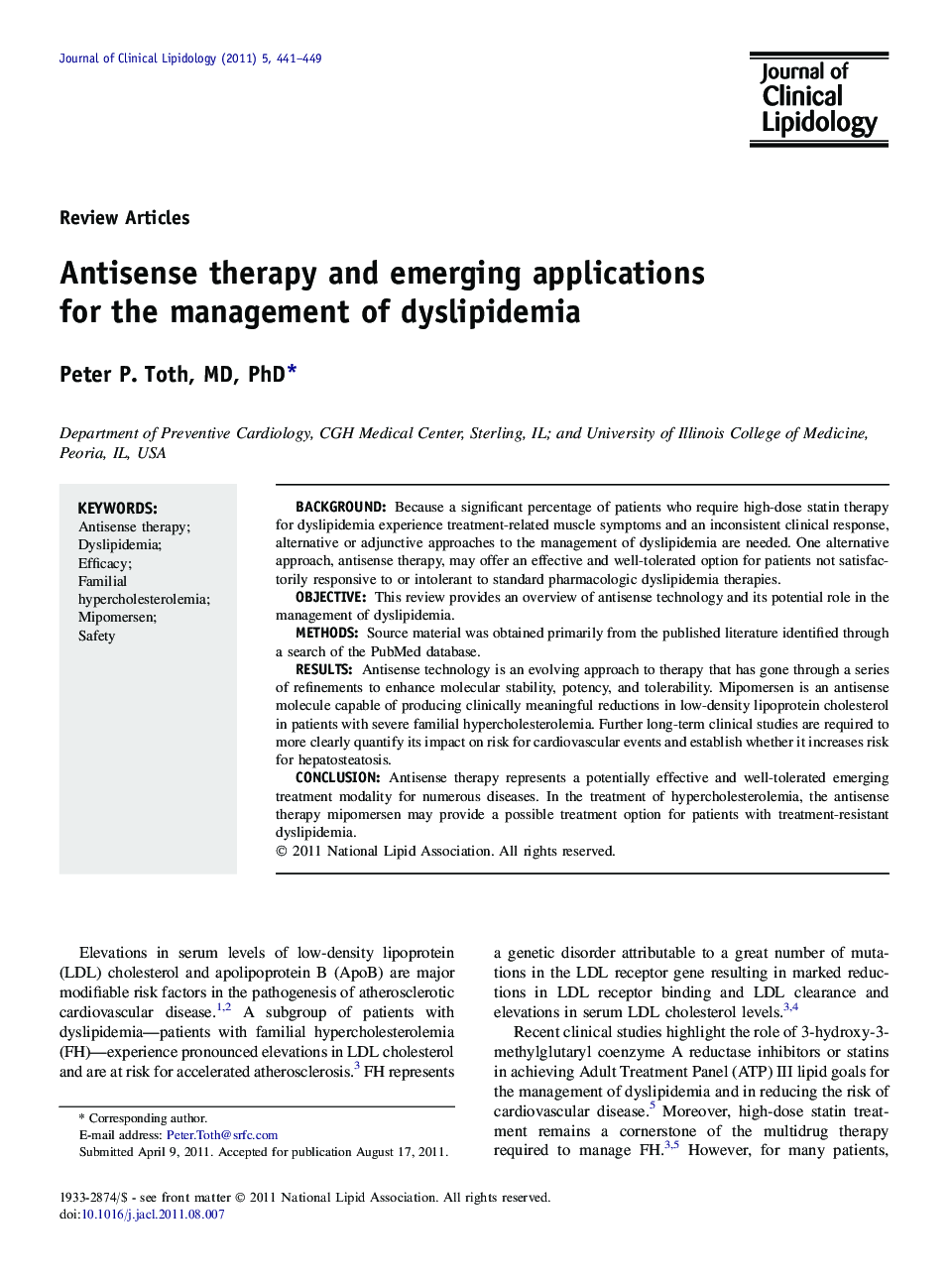| Article ID | Journal | Published Year | Pages | File Type |
|---|---|---|---|---|
| 2966208 | Journal of Clinical Lipidology | 2011 | 9 Pages |
BackgroundBecause a significant percentage of patients who require high-dose statin therapy for dyslipidemia experience treatment-related muscle symptoms and an inconsistent clinical response, alternative or adjunctive approaches to the management of dyslipidemia are needed. One alternative approach, antisense therapy, may offer an effective and well-tolerated option for patients not satisfactorily responsive to or intolerant to standard pharmacologic dyslipidemia therapies.ObjectiveThis review provides an overview of antisense technology and its potential role in the management of dyslipidemia.MethodsSource material was obtained primarily from the published literature identified through a search of the PubMed database.ResultsAntisense technology is an evolving approach to therapy that has gone through a series of refinements to enhance molecular stability, potency, and tolerability. Mipomersen is an antisense molecule capable of producing clinically meaningful reductions in low-density lipoprotein cholesterol in patients with severe familial hypercholesterolemia. Further long-term clinical studies are required to more clearly quantify its impact on risk for cardiovascular events and establish whether it increases risk for hepatosteatosis.ConclusionAntisense therapy represents a potentially effective and well-tolerated emerging treatment modality for numerous diseases. In the treatment of hypercholesterolemia, the antisense therapy mipomersen may provide a possible treatment option for patients with treatment-resistant dyslipidemia.
